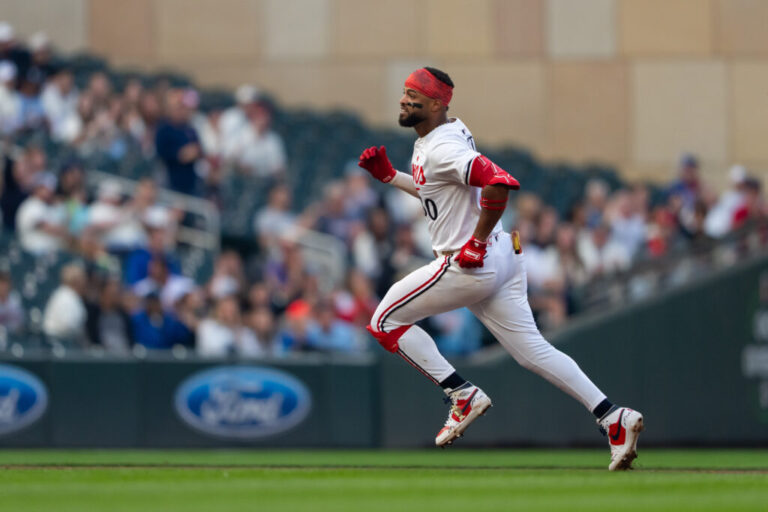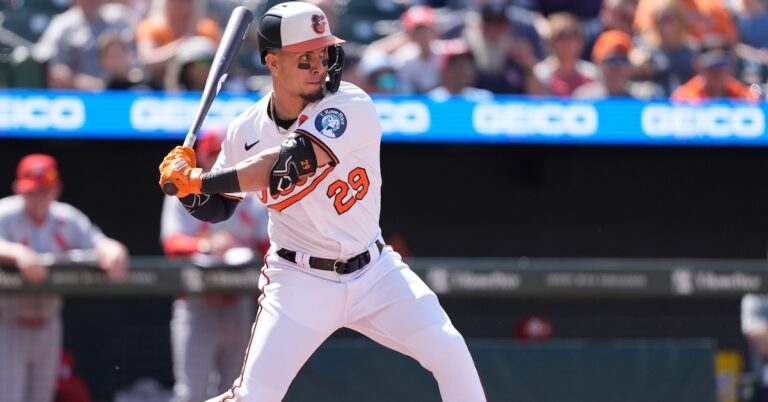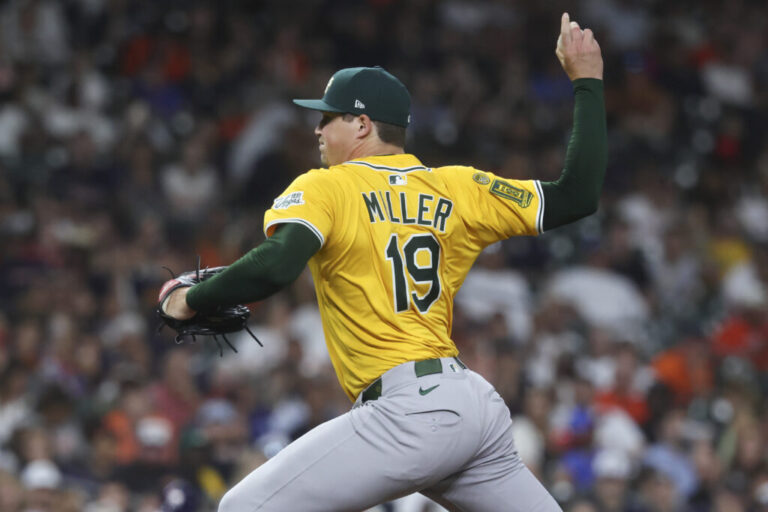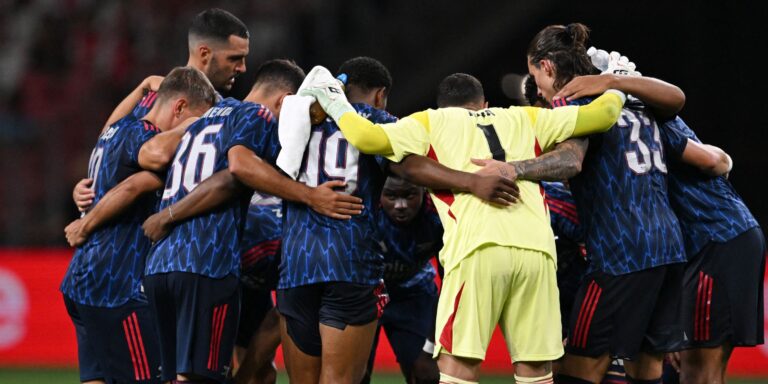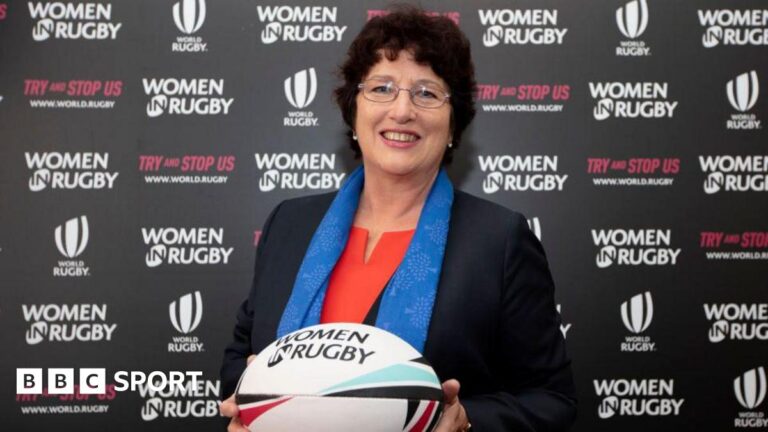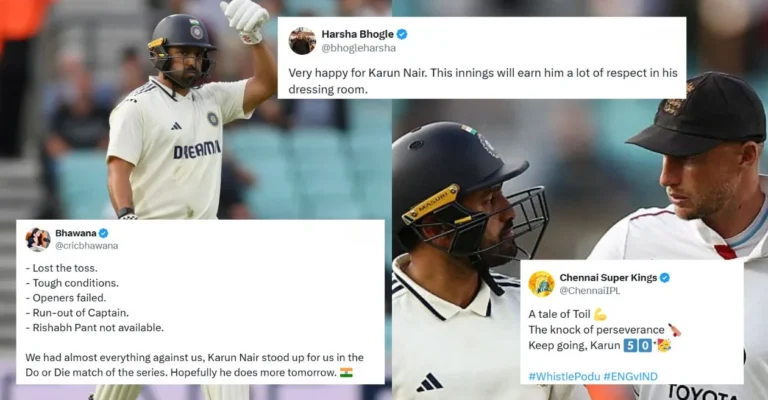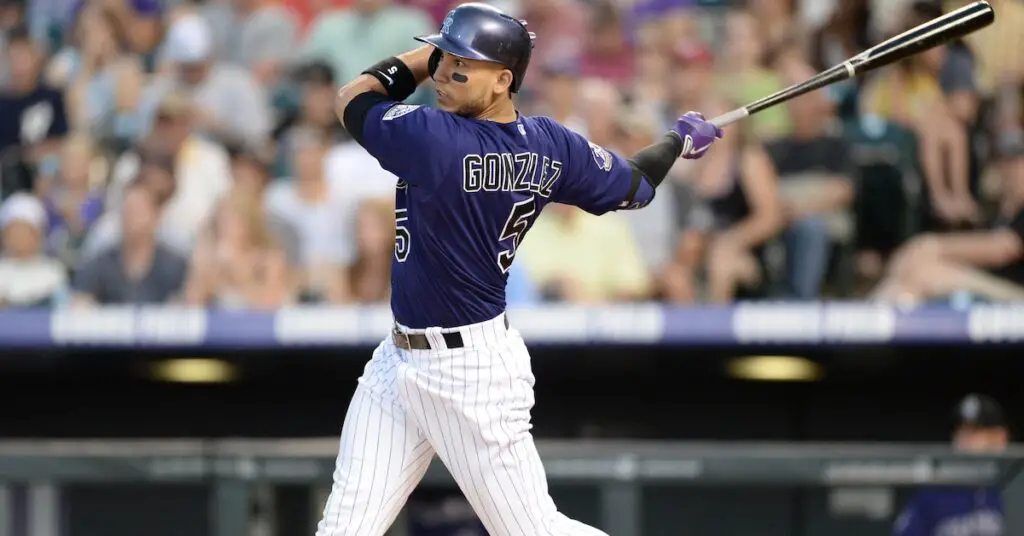

The following article is part of Jay Jaffe’s ongoing look at the candidates on the BBWAA 2025 Hall of Fame ballot. For a detailed introduction to this year’s ballot, and other candidates in the series, use the tool above; an introduction to JAWS can be found here. For a tentative schedule, see here. All WAR figures refer to the Baseball Reference version unless otherwise indicated.
2025 BBWAA Candidate: Carlos González
| Player | Pos | Career WAR | Peak WAR | JAWS | H | HR | SB | AVG/OBP/SLG | OPS+ |
|---|---|---|---|---|---|---|---|---|---|
| Carlos González | LF | 24.4 | 23.7 | 24.1 | 1,432 | 234 | 122 | .285/.343/.500 | 112 |
SOURCE: Baseball Reference
He won’t end up in Cooperstown like Larry Walker and Todd Helton, and he was never the face of the franchise the way Troy Tulowitzki was, but Carlos González is the only player to appear in three separate postseasons for the Rockies, a bridge between high points of the Helton/Tulowitzki era to those of the Nolan Arenado one. González solidified his spot in the majors with the 2009 Rockies, who overcame a slow start to claim a Wild Card berth, and was still playing regularly (albeit much less effectively) on their ’17 and ’18 Wild Card qualifiers. In between those October appearances, the sweet-swinging CarGo made three All-Star teams, took home three Gold Gloves, and won a very Coors Field-flavored batting title that propelled him to third place in the 2010 NL MVP race. Alas, as with so many other Rockies stars, he also battled numerous injuries, topping 140 games just three times in his 12 seasons.
Carlos Eduardo González was born on October 17, 1985 in Maracaibo, Venezuela, to parents Euro (an auto mechanic), and Lucila (an employee in the insurance industry). Euro had only a passing interest in baseball, but his oldest son, Euro Jr., dominated street games in their Maracaibo neighborhood. Euro Jr. didn’t start playing organized baseball until he was 12, so he never had the opportunity to capitalize on his raw talent, but he took great interest in the affinity that Carlos, his younger brother by seven years, had for the game. When Carlos was five, Euro Jr. helped find him a Little League team, his entry into Venezuela’s vast state-run youth baseball structure. Euro Jr. worked to help his younger brother buy a glove and baseball shoes.
As a child, Carlos often snuck into the kitchens and closets of relatives and hijacked their broom handles. “I would find the broom and unscrew it so I had a bat to hit stuff with,” he told the Denver Post’s Troy Renck in 2013. His toys became projectiles. “I never liked playing with them. I would toss them up in the air and hit them all the time,” as he told Renck.
It wasn’t long before González was playing against boys a few years older than him, and copying the left-handed batting stance of fellow Venezuelan Bobby Abreu. González was “the kid that hit home runs nearly every at-bat when he was 8 and dropped jaws with moon shots as a teenager,” according to Renck. At 12, he hit a monster homer off fellow future major leaguer (and 2025 ballot newcomer) Félix Hernández. Scouts discovered him during the 2001 Senior League World Series, for boys between 13 and 16 years old; at that year’s tournament González played against future major leaguers such as Tulowitzki and Tyler Clippard. Agent Jose Ortega was impressed enough that he offered to house and train González in Tampa, Florida, to prepare him to sign with a major league team when he turned 16. González’s parents gave their blessing, so he quit school just prior to graduation, and moved to Tampa, where he roomed with five other Venezuelan players, including future major leaguer Alberto Gonzalez (no relation). On August 3, 2002, he signed with the Diamondbacks.
González spent five seasons in Arizona’s system, earning in-season promotions three times. He was the Midwest League’s MVP in 2005, when he hit .307/.371/.489 with 18 home runs and 92 RBI; he cracked the Baseball America Top 100 Prospects list, at no. 32, the following spring, and peaked at no. 18 in 2007. At various points on his way up, BA quoted managers or scouts comparing him to Abreu and Carlos Beltrán. After González hit .288/.336/.478 with 17 homers and 10 steals in a 2007 season split between Double-A Mobile and Triple-A Tucson, the Diamondbacks — who already had young outfielders Carlos Quentin, Justin Upton, and Chris Young vying for playing time with veteran Eric Byrnes — dealt him to the A’s in November as part of a six-player package in exchange for pitchers Dan Haren and Connor Robertson.
The A’s, who had won the AL West in 2006, were in the midst of one of their periodic rebuilds; they had been active ahead of the 2007 trade deadline, and within a month of trading Haren, they also dealt away Nick Swisher and Mark Kotsay. González entered the 2008 season ranked 22nd on BA’s Top 100 Prospects list; the publication raved about his physical tools but sounded notes of caution about his attitude:
“He has tremendous bat speed, with a pure easiness to his swing that generates plus raw power to all fields… A prototype right fielder, he has an above-average arm and enough speed to play in center field if need be…
“Scouts and managers often have been turned off by González’ approach to the game, accusing him of giving away at-bats or not hustling at times. The Diamondbacks have addressed this concern in the past and say it’s a case of immaturity and lack of focus but not bad makeup. To the contrary, they say he’s a bright, outgoing person who wants to be a star.”
The 22-year-old González began the 2008 season at Triple-A Sacramento, where he hit .283/.344/.416 in 46 games before he was called up by the A’s in late May. He debuted on May 30, doubling twice off the Rangers’ Kevin Millwood and driving in Oakland’s only run in a 3-1 loss. On June 20, he hit his first homer, a solo shot off the Marlins’ Mark Hendrickson. Serving as the team’s regular center fielder but also dabbling in right, he scuffled at the plate, hitting just .242/.273/.361 (71 OPS+). He was optioned to Sacramento in late August and stayed through the Pacific Coast League playoffs, during which he shared Postseason MVP honors with Chris Denorfia while helping the River Cats to the PCL Championship.
In November, CarGo was on the go again, traded to the the Rockies along with pitchers Greg Smith (who was also in the Haren deal) and Huston Street in exchange for Matt Holliday. The Rockies started him at Triple-A Colorado Springs, where he hit .339/.418/.630 with 10 home runs in 48 games before getting called up in early June. The Rockies had started the season 18-28 before firing manager Clint Hurdle, who had taken them to the World Series just two years earlier. González arrived about a week after bench coach Jim Tracy took over. Playing mainly against righties and spending more time in left field than in center, he hit .284/.353/.525 (118 OPS+) with 13 homers and 16 steals in 89 games. The Rockies went 74-42 under Tracy to claim the Wild Card spot. In the Division Series, González terrorized Phillies pitching, collecting multiple hits in each of the four games. He went 10-for-17 with two doubles and a home run; while he scored five runs, the homer represented his only series RBI, and it came in a Game 3 loss.
Starting with a 4-for-5 performance against the Brewers on Opening Day, González broke out in 2010, batting .336/.376/.598 (143 OPS+) with 34 home runs and 26 stolen bases. In both July and August, he slugged above .700 and totaled 17 homers across those two months alone. On July 31, he hit for the cycle against the Cubs, capped by a walk-off two-run homer; it was his second straight four-hit game and his fourth in a row with a home run.
González beat out Joey Votto for the NL batting title, thanks in large part to a .380/.425/.737 slash line at home. Even so, the performance was hardly out of place among the batting titles won by Rockies hitters:
Rockies Who Won Batting Titles
| Player | Year | Home AVG | Overall AVG | Dif |
|---|---|---|---|---|
| Larry Walker | 1999 | .461 | .379 | .082 |
| Larry Walker | 1998 | .418 | .363 | .055 |
| Larry Walker | 2001 | .406 | .350 | .056 |
| Andrés Galarraga | 1993 | .402 | .370 | .032 |
| DJ LeMahieu | 2016 | .392 | .348 | .044 |
| Todd Helton | 2000 | .391 | .372 | .019 |
| Charlie Blackmon | 2017 | .391 | .331 | .060 |
| Carlos González | 2010 | .380 | .336 | .044 |
| Matt Holliday | 2007 | .376 | .340 | .036 |
| Michael Cuddyer | 2013 | .356 | .331 | .025 |
| Justin Morneau | 2014 | .327 | .319 | .008 |
SOURCE: Baseball Reference
González additionally led the NL with 197 hits and 351 total bases, ranked second in slugging percentage, and sixth in both OPS+ and WAR (5.9). Votto claimed 31 of the 32 first-place votes in the NL MVP race, with Albert Pujols getting the other one; González finished third and additionally won his first Gold Glove, though the metrics show he was just two runs above average via DRS. His performance wasn’t enough to get the Rockies back to the playoffs, as they finished third in the NL West, at 83-79.
Viewing him as a cornerstone along with Tulowitzki, the Rockies hammered out a seven-year, $80 million extension with González in January 2011. He wasn’t quite as good that year, hitting .295/.363/.526 (125 OPS+) with 26 home runs and 4.3 WAR. He injured his right wrist crashing into the center field wall at Coors Field on July 3; though he spent only 15 days on the disabled list for it later in July, the lingering effects of what was ultimately diagnosed as a deep bone bruise shut him down in mid-September.
González was voted into the All-Star lineup in both 2012 and ’13, and he won Gold Gloves in both years. Superficially, the seasons were similar on the offensive side, albeit with a bit more power in the later year — .303/.371/.510, 122 OPS+ with 22 homers in 2012; .302/.367/.59, 144 OPS+ with 26 homers in ’13. However, González plummeted to -13 DRS in 2012, his first season as a full-time left fielder, before rebounding to 11 DRS in ’13, and so his WAR fluctuated from 1.6 to 5.1. That latter total came in just 110 games, as he sprained a ligament in his right middle finger on July 7, reaggravated it on July 25, played just two games in August before going on the disabled list, and was limited to defensive replacement duty in seven September appearances before again being shut down for the season.
Unfortunately, the Rockies were on their way down as well. After sliding to 73-89 in ’11, they went 64-98 in ’12, setting a franchise record for losses that would stand until 2023. They improved a bit in 2013, to 74-88, but sank back to 66-96 in ’14, a season that for González was completely wrecked by injuries. Hampered by tendinitis in his left knee, he played in just 70 games and hit for an 88 OPS+ with -0.5 WAR. After missing five weeks due to surgery to remove a benign tumor on his left index finger, he needed season-ending surgery to repair his left patellar tendon in mid-August. The news of his surgery hit a day after the Rockies lost Tulowitzki to his own season-ending surgery to repair a torn hip labrum.
Like his teammate, González spoke of the difficulties of recovering from playing at altitude. As he told the Denver Post’s Nick Groke:
“I still have that fire, that passion,” González said. “But it’s limited. I show up the first game and go 3-for-5 with a home run, and I extend a single into a double. And then the next day, I feel like I got hit by a bus.”
… “It’s hard to play that way, when you go out there and feel like, ‘I can’t move today. I just hope nobody hits the ball where I’m playing right now,’” he said. “When your body gets stressed, your mental part gets affected too.”
When González returned to action in 2015, he moved to right field as part of an outfield shuffle that put Charlie Blackmon in center. He was healthy, setting career highs with 153 games and 40 home runs (third in the league), though he had become less patient at the plate and more prone to chasing outside the zone. His .271/.325/.540 line translated to just a 116 OPS+, and with average defense in right, his 2.6 WAR was merely solid, not special. Healthy again in 2016, he hit 25 homers to go with a .298/.350/.505 (111 OPS+) line and 2.3 WAR; he made his first All-Star team since 2013, and the Rockies went 75-87, mediocre but still their best showing in three years.
After serving as a bright spot during some lean years for the Rockies, González faded to around replacement level just as they became good again. His performance against left-handed pitching had deteriorated markedly; after managing a 109 wRC+ against lefties from 2009–13, he had slipped to a 57 wRC+ against them from ’14–16. The Rockies still valued him enough to offer him a three-year, $45 million extension in the spring of 2017 — the final season of his seven-year contract — but he rejected that. He then spent the first half of 2017 battling a sleep disorder, and plummeted to .262/.339/.423 (86 OPS+) with -0.2 WAR overall. Those numbers would have been even worse if not for a red-hot September in which he was the team’s best hitter (.377/.484/.766 with six of his season’s 14 homers), helping the Rockies eke out a Wild Card berth. In the Wild Card Game itself, González went 2-for-5 against the Diamondbacks in a losing cause.
Even with Scott Boras as his agent, González found a less-than-robust market in free agency. Several teams — including the Astros, Blue Jays, Orioles, Royals, and White Sox — reportedly showed at least some interest, but nobody offered anything approaching the deal he had bypassed in the spring, and while he remained upbeat about his prospects, as names came off the board, he remained unsigned. In late February, Arenado publicly lobbied for his return, saying, “I think it would be safe to say that everyone here misses him, really badly… CarGo is a great player. I want him on my team.”
In early March, González finally agreed to a one-year deal guaranteeing $5 million, with an additional $3 million worth of incentives based on days on the roster. He met those incentives and was marginally more effective than in 2017, hitting a still-meager .276/.329/.467 (99 OPS+) and 0.8 WAR propped up by a big July performance that wasn’t sustainable. He went just 2-for-12 in the postseason; the Rockies beat the Cubs in the NL Wild Card Game but were swept by the Brewers in the Division Series.
With that, González hit free agency again, and this time couldn’t even scare up a major league deal. He settled for a minor league deal with Cleveland in mid-March, opened the season with half a dozen games at Triple-A Columbus, and joined the big club in April; for a few days, he was teammates with current ballot-mate Hanley Ramirez, who was making his final major league stop. González wasn’t very effective, playing just 30 games before being released in late May. He caught on with the Cubs in early June, but was released again in July after just 15 games. Still hoping to find a job at 34 years old, he signed another minor league contract with the Mariners in February 2020, but was released in late June, just as camps were reopening following the pandemic shutdown. He never signed another deal.
The Rockies have had only intermittent success in their 32 seasons, finishing at .500 or better just nine times and making the playoffs a mere five times. Other players may have accomplished more, but as the bridge between two successful, if short-lived periods in the franchise’s history, González occupies a notable niche, a fond reminder of better times.
